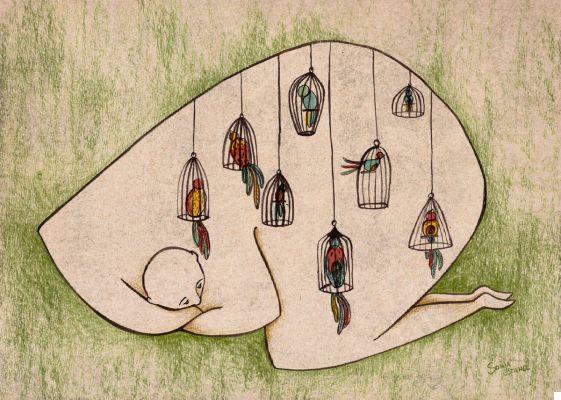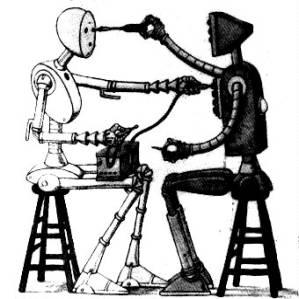
Even strong people sometimes break down. They don't normally give in from weakness, but precisely because they have been too strong and too long. Those people, and all of us in general, sometimes just need to be told that "everything will be fine". Sometimes we need someone to take us by the hand and encourage us. This support alone is enough to move forward, to regain the strength we have lost along the way.
Eventually everything will be fine, and if it doesn't, it means it's not the end yet
At certain times we just need someone to support and comfort us, who tells us that everything will be fine. These almost magical words can lighten the weight of fears and eliminate worries, but above all they give us the confidence we need to keep fighting.
They do not represent a pitiful lie and they do not mean closing our eyes on a difficult reality, but only that we are emotionally connected with someone who is able to give us the serenity and trust we need at that precise moment.
The fact that they tell us that everything will be fine does not mean that there will be no problems, but that we will have the ability to fight and overcome the obstacles we encounter. These words do not guarantee us that we will succeed, but they do serve to strengthen our resilience when we need it most.
Someone tell us that everything will be fine, it helps and a lot. When we are mired in our mental quicksand, it is important for someone to remind us that everything passes, to take us by the hand and promise us to stand by our side, whatever happens. It gives us peace of mind.
Science shows us why it is so important to trust in our ability to overcome adversity
Psychologists at the University of California wondered whether coping with a disease could influence its course. They worked with people diagnosed with cancer and identified five styles of coping: fighting spirit, fatalism, hopelessness / helplessness, anxious worry, and denial.
Thus they found that, when the initial clinical conditions were similar, people who faced the disease with helplessness, despair and fatalism had a worse course than those who had a fighting spirit.
But the most interesting thing was that being aware of past experiences helped them overcome the difficulties of the present. Those who had suffered a great deal of trauma and had overcome it on their own were more likely to successfully cope with adversity and find the tools needed to solve problems, simply because they had more confidence in their ability to cope with life.
In other words, the greater the suffering of the past, the more likely it is that we will find the necessary strength and adopt the right attitude to overcome those of the future. Ernest Hemingway had already said it: “The world breaks everyone, and then many are strong right at the broken points”.
Another very interesting series of experiments conducted at the University of Michigan shows that our ability to feel positive emotions is fundamental to recovering from adversity, not only on a psychological level, but also on a physiological level. Indeed, positive emotions allow us to make sense of negative events and help us move forward faster.
These psychologists warn that it is not a question of assuming a toxic and naive optimism. In fact, they observed that perceiving negative experiences as threats has positive effects as it requires us to deal with circumstances quickly. But if the negative perception is maintained over a long period of time the effect is counterproductive.
This indicates that positive emotions, feelings of empowerment and self-confidence are the fundamental pillars of resilience that help us get out of the most difficult situations.
The need to lean on others
Many personal growth gurus promote the idea that we need to develop our "self-reliance" skills in such a way that we don't need others. We are encouraged to develop resilience, a bombproof self-esteem and a very strong personality, so that we can overcome adversity on our own.
It is certainly important to have these tools, but we cannot think that we will not need the support of others, especially when things get complicated. It is also important to remember that very often, those who think they do not need anything do not even offer anything.
The secret lies in maintaining balance and being aware that even though we are strong, we are not immune to suffering. The resistant person is not the one who fights alone against the wind and the tide, but the one who knows how to ask for help when he needs it. And if so, a helping hand and a few comforting words can work wonders.

























